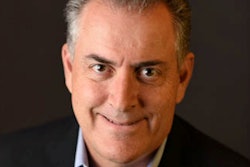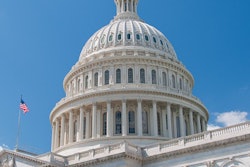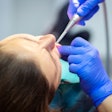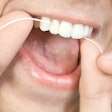
A flurry of activity in Washington, D.C. -- including efforts to repeal and replace the Patient Protection and Affordable Care Act (ACA) and proposed changes to how Medicaid funding is allocated -- has the healthcare industry in a state of flux. As dental leaders brace for potentially sweeping changes to the Medicaid program, many are wondering how Medicaid dentistry will fare.
 Andrew Oreffice is senior vice president of compliance and government relations at Benevis Practice Services.
Andrew Oreffice is senior vice president of compliance and government relations at Benevis Practice Services.President Donald Trump calls his appointments to U.S. government healthcare leadership positions "the dream team that will transform our healthcare system for the benefit of all Americans." At the helm of the U.S. Department of Health and Human Services is Secretary Tom Price, MD, a staunch opponent of the ACA. Leading the Centers for Medicare and Medicaid Services is Seema Verma, best known for designing Vice President Michael Pence's Indiana Medicaid expansion model.
Meanwhile, Trump and House Speaker Paul Ryan (R-WI) have come out of the blocks vigorously defending the unveiled plan to repeal the ACA, which expanded Medicaid access to 15.7 million Americans.
While both supporters and the opposition are loudly voicing their opinions, what happens next?
For the 64 million people covered under Medicaid -- and the providers who serve them -- that's the $545 billion question. For those of you wondering, $545 billion was Medicare's total spending in 2015.
Examining the impact on dental coverage
Here's what we do know: Children's dental services are among the essential healthcare benefits under the ACA. Further, the Children's Health Insurance Program (CHIP) guarantees dental care to 8 million more kids in working poor families. And now, under Trump, the ACA is on the chopping block and CHIP's future is uncertain.
Of course, there's much we don't know, and, without a crystal ball, it's impossible to foresee with complete clarity. But based on a few key assumptions, the outcomes for Medicaid dentistry could actually be positive.
“Medicaid dental providers are facing a potentially seismic change at both the state and federal levels.”
First, we're optimistic Congress will reauthorize CHIP, a successful program that has historically enjoyed bipartisan support. With ACA repeal-and-replace efforts underway, eliminating CHIP now would create a gaping hole in children's coverage that nothing else could fill. This program gives states considerable latitude to design streamlined eligibility and enrollment systems. It's also a program that works: A large body of research shows CHIP has improved dental access, utilization, and quality of care.
Additionally, CHIP's legislative authority doesn't expire until 2019, and it's a relatively miniscule part of the overall healthcare budget. In short, CHIP is a smart investment and we believe both sides of the aisle will agree.
Another element of the Medicaid transformation conversation is the prospect of block grants or per-capita cap grants, which would authorize set amounts of money by state or enrollment. Here, too, there could be a bright side for dental practices and patients.
Either plan would allow states to streamline programs, make processes more efficient, and potentially expand access. Meanwhile, as the lead architect of Indiana's Medicaid expansion model, Verma has a successful track record of challenging the Medicaid status quo with consumer-driven design. Through her Healthy Indiana Plan 2.0, a series of incentives and consequences encourages members to engage in their healthcare decisions and plan management.
Under Trump, the potential for success across stakeholders is there. Now, it's a matter of seeing how it all unfolds.
Charting the right course
At Benevis, our position is to advocate for dental care access, particularly for the underserved. When a child on Medicaid goes to the dentist at an early age and begins a lifetime of good oral health, it's is a win/win scenario. Children win by avoiding preventable oral health issues that cost days in school, lead to more serious health issues, and impact self-esteem. Taxpayers win because these children consume less government-funded dental care throughout their lives.
And those are scenarios we all can rally around.
Right now, Medicaid dental providers are facing a potentially seismic change at both the state and federal levels, but it doesn't mean we should veer off course in our efforts to improve dental access for underserved kids across the nation. In fact, it means now is the exactly the right time to stay engaged, focused, and committed to the cause.
Andrew Oreffice is senior vice president of compliance and government relations at Benevis Practice Services.
The comments and observations expressed herein do not necessarily reflect the opinions of DrBicuspid.com, nor should they be construed as an endorsement or admonishment of any particular idea, vendor, or organization.



















